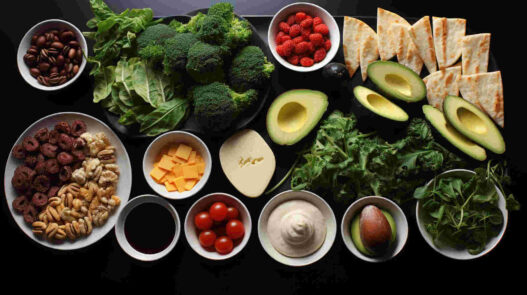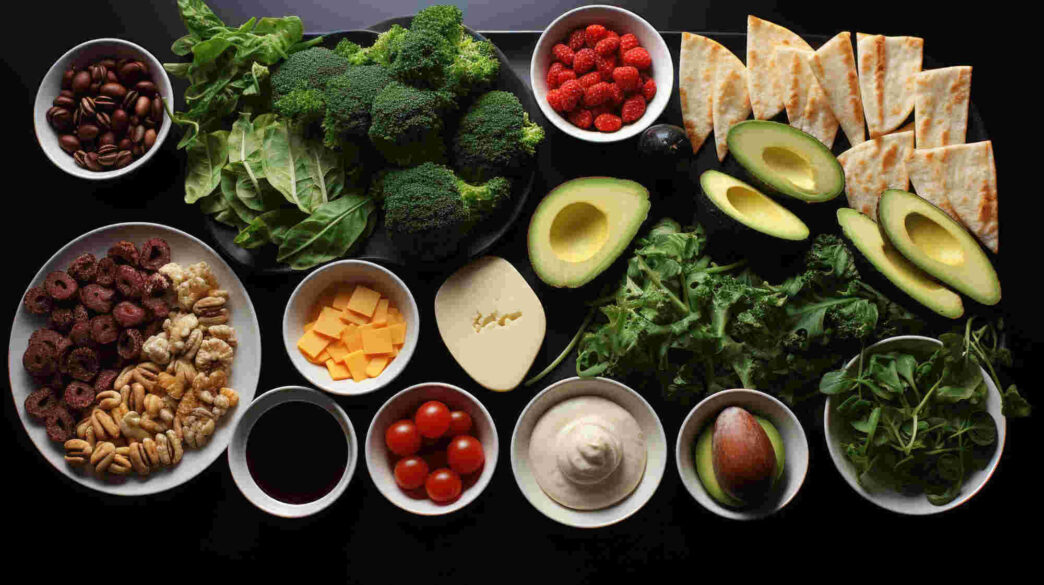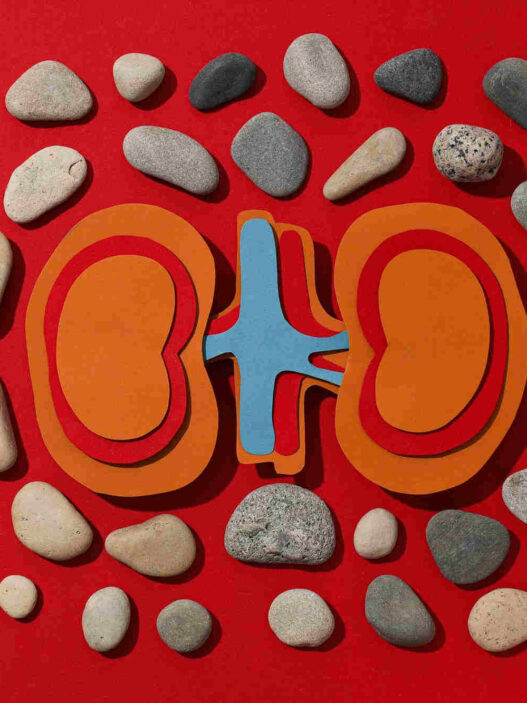Dirty Keto or Whole Foods Keto? What foods to eat on keto? A practical insight into ketogenic nutrition. Go keto wisely!
“What can I eat?” is pretty much the first question any nutrition coach gets from a new client. I love to tell people they can enjoy just about any food they’re used to eating on a well-formulated ketogenic diet. Yet all paths to “going keto” are not created equal. There are right ways and wrong ways, safe ways and unsafe ways to go about it.
Dirty Keto
Unlike other nutrition lifestyles, ketogenic nutrition seems to be the only diet that actually has a “dirty” or nutrient-poor, junk food version actually being pushed on social media and touted as being healthy – or at least being advertised as great for losing weight.
Many people’s first introduction to this very low-carb diet comes when they see processed low-carb products in a grocery store, or from colorful keto food reels they’ve watched on Instagram.
Baked cheese-covered salami chips, anyone?
These encounters can leave them with blissful visions of pounds miraculously melting from their bodies while they live off juicy red steaks, plates piled high with crispy bacon, and – forget whole milk – glasses full of heavy cream.
In fact, probably the biggest reason the keto diet has become so popular among the general public has been its ability to help people drop weight like nobody’s business.
Yes, you can eat fat to lose fat, and yes, it technically doesn’t matter if you’re doing it by eating primarily whole foods or if you’re following the trendy “dirty keto” diet.
It will work either way if a person’s only goal is to be able to fit back into the bathing suit they wore as a teenager (They’ll also put that weight right back on as soon as they return to eating high-carb, heavily processed foods).
Lifestyle changes are often pretty hard to make, and dietary changes are among the toughest.
A ketogenic lifestyle requires more study and effort to get right than most nutritional paths. However, the food industry is once again here to save the day, providing busy ketoers with an ever-increasing selection of processed low-carb foods (dirty keto) that require minimal to no preparation.
I recently went into a grocery store that carried at least twenty different flavors of low-carb ice cream (Yes – you read that right. TWENTY.)
Not only that, but in EVERY OTHER SECTION of that store, I found ready-to-eat keto products (dirty keto): keto toast bread and tortillas… keto chips, cookies, candies, and chocolates… frozen keto desserts and keto breakfasts… and the list goes on.
All of these products are marketed to help a person meet their low-carb goals without having to sacrifice convenience.
The fast-food industry is also stepping up. Now everyone’s favorite burgers and fried chicken sandwiches are being offered bun-less in handy lettuce wraps and sugar-free drinks can be had in just about any flavor.
Fast food, whether it’s from a drive-through or the grocery store, is aptly named. When someone follows a dirty keto diet, they really use these low to no-effort options to their advantage.
Dirty keto is quick and easy, and as long as a person can resist eating too many of those tempting dirty keto snacks, they should burn enough of their own fat stores to reach their weight goals.
If weighing less meant the same as truly being in a state of good health, then I guess we could leave it at that. Alas, what’s outside often does not reflect on what’s inside. If you’re interested in BEING WELL as well as looking good, read on.
Whole Foods Keto
A modern, well-formulated ketogenic diet, based on scientific research and used in clinical practice (as well as by responsible low-carb nutrition coaches), is a type of primarily WHOLE FOODS NUTRITION.
Whole foods ketogenic nutrition means you’re getting the bulk of your foods from sources that don’t need an ingredient list on the packaging.
It includes unprocessed and minimally processed protein choices, healthy fats, as well as carbohydrates mainly from vegetables, nuts, seeds, and select fruits.
Whole foods keto is far more nutrient dense and satisfying than the inflammatory oils, additives, and heavily processed nutritional fluff you’d get following a dirty keto diet.
Now it might sound like this will turn you into a bunny rabbit but let me assure you – you can have your cake and eat it too on whole food keto!
Greek yogurt parfait topped with crunchy nut granola, grilled chicken with a side of herb-roasted vegetables, spicy Korean BBQ with kimchi and lettuce wraps, creamy Indian butter chicken with cauliflower rice, rich Bolognese sauce over baked zucchini… you can enjoy flavors you like from all the around the world, simply made by substituting here and there with different ingredients.
Better ingredients. Nutrient-dense, satiating ingredients.
Sound good? Of course, it does! Where do you sign up?
Before you rush to download the first three-day keto menu you come across online, you’ll need to educate yourself, and you’ll need to do some planning.
Whole foods ketogenic nutrition isn’t one size fits all!
The one aspect of a keto diet that’s the same across the board is this: carbohydrate intake must be restricted to a level that keeps the body in a state of nutritional ketosis – that is, in a metabolic state where fatty acids and ketones (derived from the breakdown of fat in the liver) – are the body’s primary fuel source.
Other than that, a keto diet can be adjusted to fit almost anyone’s needs. From pure carnivore (also known as zero carbs) to heavily plant-based and even vegan, it’s possible to find a safe and sustainable way to keto for anyone setting out on this, the lowest of low-carb journeys.
So, which one is right for you? In order to determine where to start, you’ll need to answer a couple of questions:
1. What do you hope to gain by going on a ketogenic diet?
2. Do you suffer from any health problems?
3. What are your current eating preferences and habits?
Let’s look at the first question. What do you hope to gain? Are you looking for a quick-fix weight-loss solution or a long-term lifestyle change for lasting health?
If you want to drop some weight, but don’t plan on sticking to keto once you’ve reached your goal, plan accordingly so you don’t end up yo-yo dieting.
Whatever diet you were following when you gained the extra weight wasn’t working for you, so you can’t go back to it after keto and expect to keep the pounds off.
Instead, consider transitioning to lower-carb nutrition after you’ve reached your goal, which can be just as satisfying and a bit more flexible. If you plan to go back to a high-carb diet, then keto is likely not the right choice for you.
When considering any health problems, diseases, or disorders, don’t forget to make a mental checklist of any medications you take, as well. Why?
Because on keto, the damage you can do to yourself if you don’t know what you’re doing can be greater than on other diets.
Conversely, the positive results you can get from keto followed properly can be greater than those you would get on other diets.
Let me use a metaphor to explain. If you had a nasty cold, you might go to your local pharmacy and purchase some over-the-counter medicine to help treat your symptoms.
Think of whole foods keto, and moderate carb diets as over-the-counter medicine. One of these might be all you need to help you feel better and eventually return to your previous state of health.
You don’t need a prescription, because the active ingredients in over-the-counter drugs aren’t as strong and are less likely to affect you in harmful ways if you skip a dose or if you pop one pill more than is directed on the package insert.
If, on the other hand, your nasty cold develops into pneumonia, you might go see your doctor who would likely then prescribe something stronger.
Consider whole foods ketogenic nutrition as prescription-strength medicine. Its effects on the metabolic health of the body are more powerful than any other diet.
So powerful, in fact, that it’s used alongside medication and even sometimes as a replacement for medication under the supervision of medical practitioners for help in treating a growing number of chronic conditions.
Go Keto Tips!
So, while you’re planning your diet strategy, make sure you –
a) Don’t have any conditions that would prevent you from going keto (such as a disorder that keeps you from using fat as energy)
b) Learn about which adjustments to your keto diet might be necessary for any health condition you might have, including possible interactions between keto and any medications you might be taking
c) Let your doctor know what you’re doing because you’re actually going to be using a powerful form of nutritional therapy
After you’ve figured out any special dietary needs, give a nod to your current tastes and eating habits.
In order to be successful at making a lasting dietary change, it’s important to start where you’re at rather than trying to become a different person with completely new tastes and habits overnight.
Are you a vegetarian? Going keto doesn’t mean you have to dive into eating steak. If the only meal plans you can find include beef and chicken, then create your own (I recommend doing this, anyway.)
Are you a microwave meal and a fast-food junkie? You might need to begin with dirty keto, then ease into whole food after you start to get the hang of things.
Nutrition is meant to be dynamic, just as we are living, changing, dynamic beings. Expect to have to make adjustments along the way as you discover what works for you and what doesn’t.
If you find yourself getting frustrated, it can help to participate in a support group made up of people with similar goals. Should you need it, you can also look for professional help.

Certified in fitness nutrition, trained in clinical ketogenic therapies, creator of a rolling enrollment program designed to accommodate an unlimited number of clients supported by a team of low carb and ketogenic nutrition coaches. Erin is a ketogenic nutrition coach and metabolic health mentor working virtually with private clients and collaborating with medical professionals from different organizations worldwide. She has a passion for the benefits of whole food lower carb and ketogenic diets as a means for managing disease and improving health.











